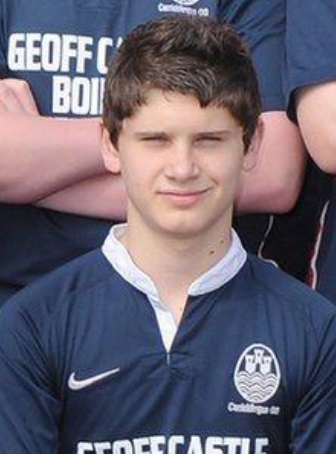
YOUNGSTERS who take a knock to the head while playing sport should “sit out” the game to avoid a potential tragedy parents were warned.
Scottish Ministers have issued new guidelines dealing with children and concussion during sport amid growing concern about Second Impact Syndrome.
The effects of a head injury may not be immediately obvious and a second impact could prove fatal, warned education minister Mike Russell.
He launched a safety campaign in Edinburgh on Wednesday, which sends the stark message to parents and teachers: “If in doubt, sit them out.”
The introduction follows a campaign by the parents of young Northern Irish boy who died from Second Impact Syndrome after a rugby match in January 2011.
Benjamin Robinson was knocked unconscious during the game but was allowed to play on where he suffered two more hard tackles.
One minute before the end of the game, the 14-year-old collapsed before being rushed to the Royal Victoria Hospital in Belfast.
Doctors likened his injuries to those seen from a car crash and tragically the youngster’s life support machine was turned off two days later.
Speaking at Trinity Academy’s Bangholm Sports and Outdoor Education Centre, Mr Russell said: “If just one life can be saved from this campaign, then it is well worth it.”
A booklet containing vital information on how to spot the signs of concussion has been issued and will now be sent to schools and sport centres across Scotland.
Ben’s father, Peter Robinson, 47, from Carrickfergus, County Antrim, said: “After Ben died we knew we could run away or try do something to help saves the lives of others suffering from concussion.
“None of us knew the devastating outcome that playing on with an undiagnosed head injury could cause and so we wanted all teachers, pupils and parents to know.
“The guys have to look after each other when they’re out on the field and in any sport really. Spotting those critical first signs could be the difference between life and death.
“The Scottish Government are the first ones to really take up our cause of all the governments and we’re over the moon with everything that’s been done so far.
“Now we just need to make sure the message gets across to all schools so no one has to go through the tragedy of losing their son or daughter.”
Ben, a pupil at Carrickfergus Grammar School, was a huge rugby fan and was one of the more dominant players on the field during that fateful game on January 29, 2011.
The first tackle which knocked Ben out came in the second half but he was allowed to carry on where he suffered two more blows to the head.
Teammates said that during the game he said he couldn’t remember the score – a sign of concussion.
Mr Russell, said: “Peter came to see me last September and told me the tragic story about Ben and his campaign.
“He told me what happened to his son and I knew we had to something to ensure young people understood the message and we need to learn from his experience.
“So we’ve got the sporting bodies involved, we’ve got the schools involved and we’ve published the leaflet.
“As we’re going into the Six Nations, it’s an important time to say this ‘if in doubt, sit it out’, because concussion can kill.
“The story of Ben is tragic and I pay huge tribute to Peter and his wife and his family for pushing the issue.
“But we need to learn from that and need to help young people learn from that and that’s what we should do.”
Consultant neuropathologist Dr Willie Stewart at Glasgow’s Southern General Hospital said: “This is a most welcome initiative from the Scottish Government and our major sporting organisations to present this clear guidance on how to manage concussion, which is summed up by the simple and safe message, ‘if in doubt, sit it out’.”
Scottish Rugby Union’s Chief Medical Officer, James Robson said: “Some people are more susceptible to getting a concussion and that includes young people.
“You can take a knock to the head and sometimes it’s not until several hours later that you start to experience severe symptoms.
“I pulled a guy from the field recently because he had forgotten the line out formation and that’s something he knows inside out.
“Looking at the video footage later we saw he had indeed had a knock to the head and pulling him off at the right time reduced any further injury that would have made his condition worse.”
He added: “Better education is needed to identify the early signs of a possible concussion such as forgetfulness or any personality changes or even feeling sick.
“Also, were asking the person to gradually ease themselves back into sport by taking some time out to recover. At the end of the day you only have one brain.
“No sport is without it’s danger and we’re not saying avoid doing it but we just need people to be more aware of the dangers associated with playing on with a head injury.”

